History made with the first Poarch Creek Tribal Citizen tapped as police chief

Surrounded by co-workers, family, and friends, Chris Rutherford was sworn in on October 28, 2024, as the Police Chief of the Poarch Creek Tribal Police Department. He joined the Tribal Police Department in 1998 and is making history as the first Poarch Creek Tribal Citizen. Tribal Chair Stephanie A. Bryan also spoke about the significance of the moment. “Chris represents the strength and dedication of our people. His achievement is a significant milestone for our Tribe and a testament to the potential we have within our community. We look forward to his leadership and the positive impact he will continue to make.” Before joining the police department, Rutherford began his career 32 years ago with the Tribe as a mechanic. He has also served in the Alabama National Guard and is also a certified firefighter According to a press release announcing his promotion, Rutherford’s family has a history of public service, with his father serving in the U.S. Army and his grandfather serving as a fire chief. He says the role is a tremendous honor that he will not take lightly. His supervisor, Bruce Lee, Director of Public Safety, witnessed Chris’s growth over the years. “Chris has worked very hard to prepare himself for this role, and his close connection to the Tribe and community makes him the perfect fit.” Rutherford’s appointment as Police Chief marks a new chapter for the Poarch Creek Indians Tribal Police Department, as well as a moment of pride for the entire Poarch community. His leadership is expected to bring an innovative and community-centered approach to law enforcement while honoring the rich traditions of the Tribe.
Jim McClendon to introduce Alabama Lottery bill in special session
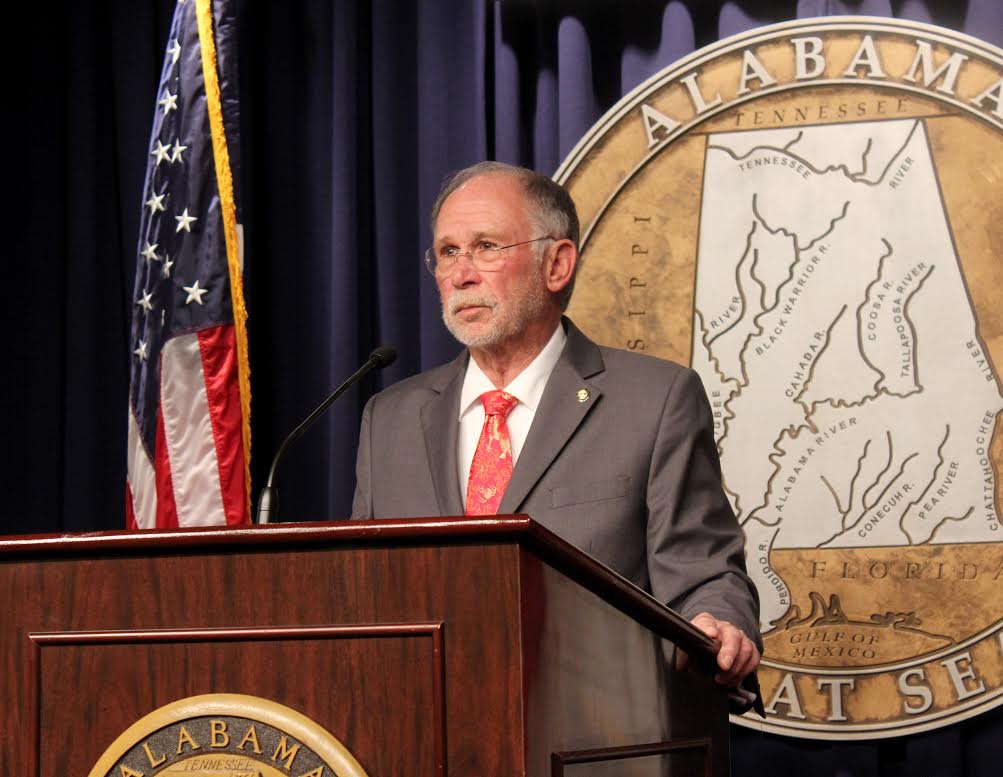
Alabama could be getting a state lottery soon, with the money going to fund Medicaid and schools statewide. State Sen. Jim McClendon, a Springville Republican, will be sponsoring a bill for the upcoming special session of the Alabama Legislature, scheduled to meet starting Aug. 15. A study by the nonpartisan Legislative Fiscal Office says McClendon’s lottery proposal could raise as much as $427 million annually. If approved, the revenue would be used toward a projected $85 million budget shortfall for Medicaid in 2017, as well as add $100 million annually for Alabama schools. “It is time to let the people vote on a lottery,” McClendon said in a statement Tuesday. “For thousands of families and children, the Medicaid budget shortfall is a personal crisis that we must solve now. “This lottery proposal will resolve the Medicaid problem and inject $100 million annually in new funding for our classrooms.” The bill would authorize Gov. Robert Bentley to negotiate a compact with the Poarch Creek Indians, and allow electronic lottery terminals in Birmingham and Mobile, as well as Macon and Greene counties. There would also be a bond issue based on expected revenue from the lottery, estimated at $75-85 million, to help close Medicaid’s 2017 budget gap. “Every year, thousands of Alabamians drive to neighboring states to play lotteries,” McClendon added. “That is money that should stay right here in our own state, to fund Alabama’s hospitals and schools. “And let me dispel a persistent myth: creating a lottery will not open the door to casino gaming. There is not one single instance in the United States where creating a lottery opened the door to legalizing gambling.” To be included on the November ballot, a lottery bill would have to pass by Aug. 24. Final approval will then be up to voters. “We must once and for all solve problems that have held our state back for decades. The state of Alabama has not and cannot at this time pay for the most basic services we must provide to our people,” Bentley said in a video message posted on social media July 27. “I am asking that each legislator allow the people back home the right to vote on a statewide lottery. I have faith in the people of this state to make the right and the best choice. I trust the voters and our legislators must do the same.”
VictoryLand electronic bingo machine bill fails in Senate
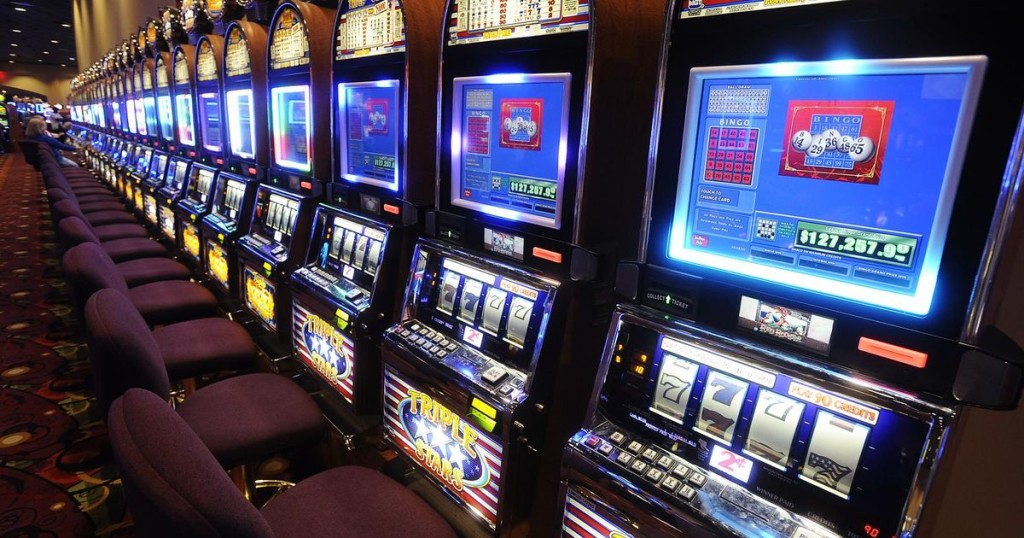
A bill that would have allowed electronic gambling machines at VictoryLand dog track failed on a procedural vote Tuesday night in the Alabama Senate. Filed by Sen. Billy Beasley (D-Clayton), SB320 — which would allow VictoryLand in Macon County to operate the same bingo machines being used by the Poarch Creek Indians at casinos in Wetumpka, Atmore and Montgomery — was narrowly supported 14-13 for debate, however, a three-fifths majority is required to debate bills before lawmakers pass state budgets. Beasley said the bill would stand to reinforce the current amendment allowing bingo in the county and help to recoup the more than 2,000 jobs lost when the gambling hall was closed down. Late last month, the Alabama Supreme Court ruled once again that electronic bingo is illegal in the Yellowhammer state, making the bill’s passage necessary to continue operations at VictoryLand. VictoryLand owner Milton McGregor has said he plans to reopen despite losing a three-year legal battle over the legality of electronic bingo machines. The VictoryLand bill was the second electronic bingo bill to fall short in the Alabama Senate this month. Last week, a proposal by Sen. Bobby Singleton (D-Greensboro) to add an amendment to the state constitution that would keep GreeneTrack’s bingo casino operational failed by four votes shy of the necessary 21.
Fantasy sports, gambling could be big business for state

A slate of bills aimed at loosening Alabama’s gambling laws and setting the state up to benefit from the lucrative gaming industry have been slowly winding their ways through the legislative chambers this Session, but none have gained any real traction in a Legislative Session marred in controversy over ill-fated budgets and sexually explicit recordings. Despite that, the bills keep coming, aimed at regulating untapped gaming revenues and opening the doors to a state lottery and even full-on casino gambling. The first high-profile lottery bill was announced only days before the start of the Legislative Session. Sen. Jim McClendon (R-Springville) and Rep. Alan Harper (R-Northport) introduced SB19 and HB13, respectively, that offer a constitutional amendment to allow a state lottery to be established. The bill makes no mention of how the proceeds from such a lottery would be spent, it only allows for residents to vote on whether a lottery should be operated in the state. Legislators would be tasked with figuring out how to set up and allocate the proceeds next year. The Harper-McClendon legislation has passed hurdles in their respective committees, but so far has not come up for discussion on either floor Rep. Craig Ford (D-Gadsden) has offered four bills aimed at establishing the Alabama Lottery Commission and distributing the proceeds from the operation. HB10 would establish the commission, as well as the Lottery Trust Fund where profits would be stashed to fund college scholarships for qualifying students. HB208 establishes the Alabama Gaming Commission, which would oversee pari-mutuel wagering at county-approved racetracks and levy taxes on some establishments. HB209 is the meat and potatoes of 10 and establishes all of the commissions, corporations and funds required to oversee the proposed state lottery and gaming endeavors. HB278 allows the governor to negotiate a compact with the Poarch Creek Indians, who are currently the only operation allowed to offer slot-machine gaming in the state. Like the Harper-McClendon bills, Ford’s bills have gone before their required committees but have gained no real traction. Sen. Trip Pittman (R-Daphne) has offered his own lottery bill, SB232, which would allow Alabama to participate in other multistate lotteries and compel the legislature to establish rules regarding the enterprise. Pittman’s legislation has gone before committee but has not yet come out on the other side. Rep. John Knight (D-Montgomery) has offered HB263, which would simply repeal Alabama’s prohibition on a state lottery. Knight’s legislation was directed to committee in February but, so far, has gone nowhere. And while lottery and pari-mutuel gambling has long been a centerpiece of Alabama’s political discourse, a newcomer has made its way into the fold. Two bills have been filed to regulate fantasy sports contests in the state, possibly setting the state up to be involved in what has quickly become a multibillion operation. SB114 from Sen. Paul Sanford (R-Huntsville) and HB56 from Rep. Connie Rowe (R-Jasper) would both establish regulatory rules regarding fantasy contests in the state. The bills would require contest operators to institute procedures for consumer protection, require audits of operators and provide penalties for those operating outside of the established regulations. Further, the bill makes the industry immune from being considered a gambling operation in the state. Both have seemingly stalled in committee. Despite the fact Alabama could benefit greatly from the revenue that these types of gaming operations would generate – Missouri is expecting to generate “several million” dollars off of fantasy contest regulation (an industry slated to rake in about $20 billion by 2020) and South Dakota has raised nearly $2.5 billion through its state lottery – state lawmakers appear poised to avoid a vote on the topic and let another year tick by with no good answers on how to generate much-needed funding. Being in the Bible Belt may be the biggest reason Alabamians have long opposed such gaming operations, but it doesn’t hurt that organizations that run gambling enterprises, such as the Poarch Creek Indians, have funneled money into anti-gambling candidates’ campaigns. The New York Times reported in 2014 that the group had covertly spent $350,000 to fund anti-gambling candidates. And that wasn’t the first time. In the late 1990’s, Christian Coalition Chairman Ralph Reed was caught up in a scandal with GOP lobbyist Jack Abramoff. The duo funneled $1.3 million from the Choctaw Tribe to the Alabama Christian Coalition. The move was made to hide that the money had come from Choctaw gaming interests and used to fight video poker and a proposed lottery in the state.
Ala. AG Luther Strange clarifies state’s position on electronic bingo
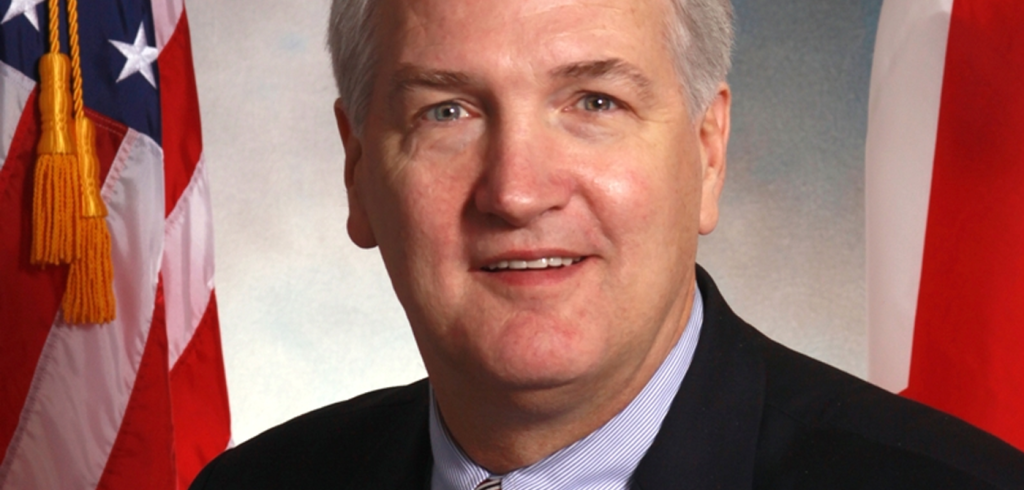
On Wednesday, Alabama Attorney General Luther Strange released a copy of his response to a request from United States Attorney George Beck, who asked for clarification on the state’s position on the legality of electronic bingo machines in the state March 21. The request specifically requested information regarding gaming on tribal and non-tribal property. In the letter, Strange notes that Beck’s request likely stemmed from a lawsuit between Strange and Tuskegee Mayor Johnny Ford. Ford sured Strange “several years ago,” but the suit was eventually dropped and Ford’s attorney sanctioned for filing a “legally frivolous lawsuit.” Strange goes on to note that neither “electronic bingo” or “bingo machines” appear in the Code of Alabama and only defines an illegal gambling device as “any device, machine, paraphernalia or equipment that is normally used or usable in the playing phases of any gambling activity, whether that activity consists of gambling between persons or gambling by a person involving the playing of a machine.” The Alabama Code further defines slot machines as “a gambling device that, as a result of the insertion of a coin or other object, operated, either completely automatically or which the aid of some physical act by the play, in such manner that, depending upon elements of chance, it may eject something of value,” a tenet that essentially outlaws electronic bingo machines in the state. Strange’s response goes continues that tribal gaming is overseen by the federal government and the National Indian Gaming Commission has ruled that federal law allows for electronic bingo machines to be operated on native land despite a state ban on the instruments. The response references multiple court rulings that have upheld Alabama’s stance that bingo machines are in fact illegal gambling devices, including a 2009 ruling from the U.S. District Court for the Northern District of Alabama. That court ruled that the way bingo machines operate “compel[s] the conclusion that the electronic bingo games at issue in this case constitute illegal slot machines under Alabama law.” In 2012, the Jefferson County Circuit Court found that “the devices before the Court are slot machines or gambling devices proscribed” by the Code of Alabama. The Houston County Circuit Court, and eventually the Alabama Supreme Court, came to the same conclusion. Strange notes his office negotiated memoranda of understanding (MOUs) with multiple out-of-state slot- machine companies in 2011, which required those companies to remove their devices from Alabama’s jurisdiction or “suffer civil and criminal penalties.” These entities have nothing to do with a tribal-state compact, as such a compact is an agreement between a tribe and a state. However, the Poarch Band of Creek Indians, which currently operates casinos in Atmore, Wetumpka and Montgomery, is not a party to any of those MOUs. Strange added that gambling regulators in other states have imposed fines on some slot-machine companies for their participation in illegal gambling in Alabama prior to 2011.
Alabama Jobs Foundation: “Let the people vote” on gaming bill

As reported Wednesday morning, the Alabama Jobs Foundation released the results of a poll it commissioned that showed strong support (69 percent) for a gaming bill a la Sen. Del Marsh‘s proposal circulating in the Legislature, and overwhelming support (89 percent) for the right to have the debate publicly by way of a referendum on the measure. Early Wednesday afternoon, AJF officials commented about the numbers and what they mean for Alabama’s economic and political future. “These results simply confirm what I hear from Alabamians across the state,” said Pat Dye, former head football coach at Auburn University. “They are ready to vote on this issue once and for all. The voters are clear about what they support: an education lottery and gaming that brings jobs, revenue and economic development to our state.” “Alabamans get it. They see Alabama dollars flowing into other states and they want those dollars stopped and working right here in Alabama for our workers and families. It’s just good old-fashioned common sense,” Dye said. Marsh — whose gaming proposal is competing for oxygen with the Poarch Creek Indian Tribe’s plan in the public sphere and the Legislature — agreed wholeheartedly. “The voters of Alabama are speaking as loud and clear as they can on this issue,” said Marsh, a Republican and Senate president pro tempore. “They demand the right to vote on this issue. They support my lottery and gaming constitutional amendment by large numbers.” “And just as important, they oppose raising taxes, too,” Marsh said as a dig at Gov. Robert Bentley and fellow senators who have proposed balancing the books by increasing tax receipts. Marsh cited the AJF poll in a news release, which showed 66 percent of voters polled oppose Bentley’s plan to increase taxes and that 63 percent of voters indicated they were inclined to vote against sitting legislators who voting in favor of such a plan . “I think those are the kind of poll numbers that should get the attention of every legislator in Montgomery,” Marsh said.
Poll: Voters overwhelmingly support Del Marsh plan, reject Robert Bentley tax increases

In a press conference Wednesday morning the Alabama Jobs Foundation announced the release of key findings from a recently conducted poll that supports efforts by Sen. Del Marsh, Senate President Pro Tempore. Highlights of the survey include: 89 percent of Alabamians demand the right to vote on gaming. 80 percent support an education lottery 69 percent support a gaming/education lottery constitutional amendment 77 percent support the Del Marsh gaming/education plan over the Poarch Creek Band proposed monopoly plan 66 percent of Alabamians oppose new taxes Among the most interesting findings are the opposition to the tax increases that Gov. Robert Bentley and Speaker Mike Hubbard are proposing is above 60 percent across party lines. The proposal to give the Poarch Creek Band a monopoly on gaming is also at more than 60 percent opposition between Republican and independent voters, with Democrats supporting it 53 to 45 percent. When given the choice of the two plans, an overwhelming majority support the Marsh plan with 70 percent of Republicans, 78 percent Independents and a whopping 87 percent of Democrats. TargetPoint Consulting in Alexandria, Va., conducted the survey of 8,009 registered voters on July 21-23. Detailed results can be found at Alabama Jobs Foundation poll overview. Check back with Alabama Today for more information and reactions to the poll.
No vote on gambling proposal from Senate panel
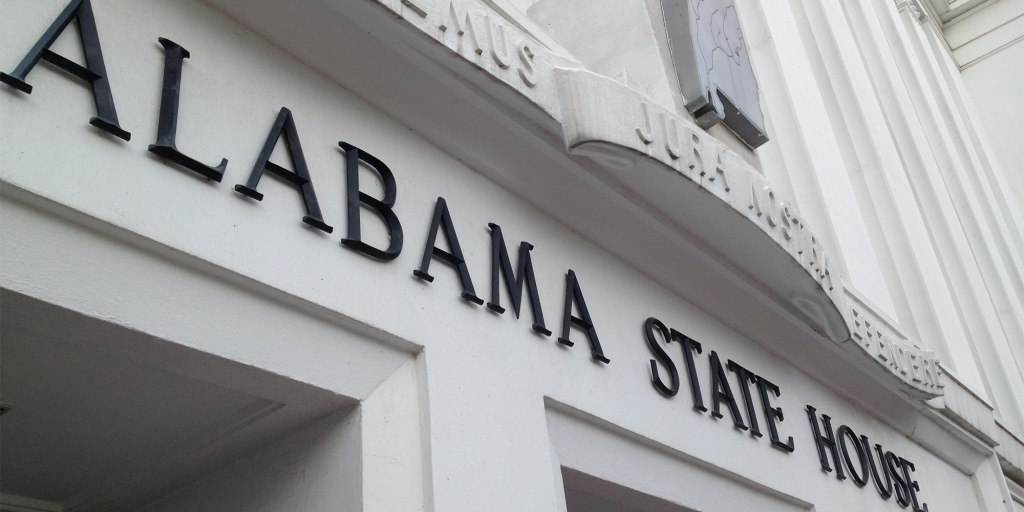
The Senate committee on tourism declined to vote Tuesday on legislation to authorize a state lottery and legalize casino-style gaming in Alabama. Last week, Sen. Del Marsh, committee chair and sponsor of Senate Bill 453, said he expected the committee to vote after Tuesday’s public hearing. Instead, the Senate panel heard extensive debate on the proposal: Eight people signed up to talk in favor of the bill, and nine asked to speak in opposition. SB 453 has been framed by bill supporters as a means for generating revenue in the state without raising taxes. Those in favor of the bill cited its potential to boost the state economy and that of the communities adjacent to casino properties. Frank Wendt, president of the Houston County Development Authority, asked the committee to consider expanding the current plan to include placing a casino in Houston County. In his testimony, he said that adding a casino in Houston County would provide $10 million in revenue to state and create more than 1,000 jobs. However, Katharine Robertson, vice president of the Alabama Policy Institute, pointed out that 20 other states have budget shortfalls even though they have state lotteries. “There is a likelihood of short-term injection in (the) fund,” Robertson said. “But in long-term (gambling) ends up being flat.” An economic impact report commissioned by Marsh’s office projected that his gambling proposal would bring up to $331 million in total revenue and add as many as 13,000 jobs in Alabama. Marsh’s proposal is one of four options lawmakers have at this point to overcome the budget shortage. Other options include adopting Gov. Robert Bentley’s plan to plug the $541 million shortfall using tax increases, approving a $250 million offer from the Poarch Creek Indians in exchange for exclusive rights to manage gaming, or allowing across-the-board budget cuts that could include the loss of up to 1,000 jobs. At a news conference last week, Marsh said that his caucus is largely in favor of the bill and his strategy of seeking a constitutional amendment so that the final decision on expanding gaming would be decided by popular vote. “I’m not hearing a lot of excitement on tax increases,” he said. “What I’m hearing from my caucus is ‘Keep this in play.’” Marsh said Tuesday that he would review comments and work to improve the bill.
Alabama Statehouse week in review: May 5-7
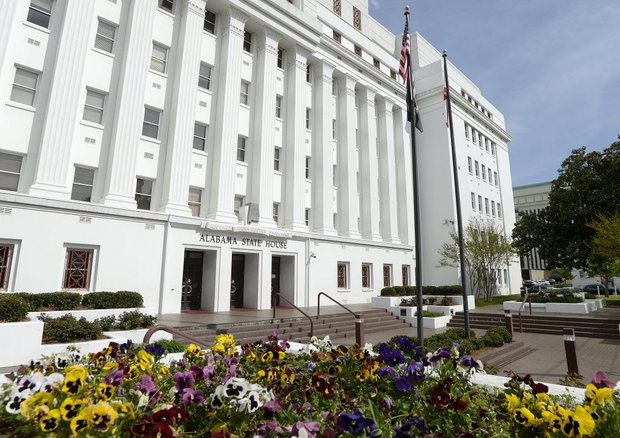
Just 10 days left in the regular session, folks. That’s assuming, of course, that Gov. Robert Bentley doesn’t have to make good on his pledge to call a Special Session if his budget proposals don’t go through. In case you missed it, here are some of the headlines that came from the statehouse this week: •Sen. Del Marsh unveiled his legislation to create a lottery and allow class three gaming in Alabama racetracks. In a press conference on Monday, he urged Gov. Bentley to “Let the people decide” on his gaming proposal before pushing forward his plan to increase taxes. •House Republicans quickly followed Sen. Marsh’s announcement with a budget plan that includes a compact with the Poarch Band of Creek Indians, as recommended in Marsh’s plan. •On Wednesday, House Republicans quickly approved a slate of tax increases mentioned in their budget plan. Most of the measured passed out of the House on Thursday, with exception of two proposals to cut state employee pay. •After heated debate last week, the House sent a bill to impose membership, term, and compensation limits on the Birmingham Water Works Board to the governor. •A new board will oversee Alabama’s two-year colleges, thanks to a bill sent to Gov. Bentley this week. Legislators said a board made up of industry and business leaders would help focus the colleges’ mission of worker training and workforce development. •Sen. Cam Ward ended the week by getting his comprehensive prison reform bill through the House. Senate Bill 67 passed with a 100-5 vote; the Senate quickly concurred on the House version, then sent it to Bentley for signature on Thursday evening.
Panelists debate gaming legislation in Mobile
Mobile news station WJTC/UTV 44 held the state’s first public forum on the issue of increased gaming since Sen. Del Marsh introduced legislation Tuesday. Marsh’s bill would create a state lottery and allow casino-style gaming in four Alabama locations. Included on the panel were three participants whose groups have publicly spoken against the bill and Prichard City Councilman Lorenzo Martin, who expressed his support for allowing the public to vote on the issue. Panelists included: John Hill, senior analyst for the Alabama Policy Institute; Les Bernal, national director of Stop Predatory Gambling; Prichard City Councilman Martin; and Robert McGhee, government relations adviser and treasurer of the Poarch Band of Creek Indians tribal council. An early question asked the potential for more gambling addictions. Bernal framed the discussion with strong criticism of any state policy based on gaming: “When you use gambling for profit, it becomes predatory because the business model is about exploiting people. You’re letting them spend far beyond their means. And the idea that state government would be partners in that is unjust and wrong.” Bernal pointed to examples in Florida and Georgia of state-run lottery programs intended to help all residents, but end up paid for by the state’s poorest communities. “The poorest counties in Georgia bought the most tickets, but the wealthiest counties got the benefit of the programs,” he said. “Middle class families in Georgia don’t have to save for their kids’ education, because they know the poor will pay for it.” McGhee, though, said Indian gaming has made a positive difference in the Native American community. McGhee said that his tribe spends millions of dollars year from Indian casinos on education and county repairs, like roads. The Poarch Band of Creek Indians he represents propose an alternative to the current bill that would include a one-time payment to the state in exchange exclusive gaming rights. He said much of the tribe’s gaming revenue goes toward paying its share of federal health care and education benefits for tribe members. He warned that the strict federal gaming regulation that Poarch Creek follows is missing in the current legislation. “Our current concern is that legislation has no regulatory process in place. They don’t tell you how they’re going to pay for that regulatory process. There are a lot of unanswered questions. “The current legislation is not good for the state of Alabama. They tell you all these jobs will be created, but they don’t tell you how.” Many audience questions asked about lack of clarity in the proposal, specifically on where the projected proceeds from the gaming proposal would be directed. Martin echoed that concern, saying that proceeds should go to heal disadvantaged minority neighborhoods and to encourage community revitalization. Hill countered with his belief that a lottery would do little to overcome the budget deficit or address community concerns. “I have very little faith in the ability of our legislators to keep their word on this,” Hill said. “Even if we raised $100 million in gambling revenue this year or next year, we’re not solving the problems of the government spending too much or living within its means. Three or four years from now, these problems are going to come back, they’re going to be worse than ever, and we won’t have gambling to fall back on.” “Unfortunately,” he said, “none of the lottery proposals out there would help anybody’s issues here at all.” As the discussion turned to a recommendation from Marsh and the House Republican caucus that Gov. Robert Bentley pursue a compact with the Poarch Band of Creek Indians, McGhee said the tribe is most interested in establishing a positive partnership with the state. “We provide government programs to our members and our constituents, like health care and educational scholarships. And we employ more than 5,000 employees throughout the state,” McGhee said. “We want to be better partners with the state and to be able to help Alabama with its fiscal and financial problems, but can only do that with a vote.” Marsh’s proposed Senate Bill 453 is a constitutional amendment that requires a popular vote. In a press conference on Tuesday, Marsh urged the governor to allow the proposal to be put up for vote in September. Martin echoed his support for allowing voters to decide on whether to expand gaming in Alabama. “Stop gambling with our lives, with our education, with our health, and with our public school systems,” Martin said. “There are so many things that people are being held back from because they’re impoverished. Let’s vote and make a decision on where you want to go.” Viewers took to Facebook and Twitter using the hashtag #YourVoiceYourFuture to weigh in on the discussion. Here are some of their comments: @LOCAL15NEWS No. The expense of the fallout of legalized gambling will surpass the benefits and politicians will still overspend. — Kevin Cobb (@WeMoKevin) May 8, 2015 @LOCAL15NEWS #yourvoiceyourfuture gamblers are going to gamble no matter what. So why not keep the money in #AL with a lottery? — Kimiko Mura (@MuraKimiko) May 8, 2015 @LOCAL15NEWS #Yourvoiceyourfuture If we are going to vote on everything, we don’t need the legislature. — Joe Godfrey (@ALCAPministry) May 8, 2015 @LOCAL15NEWS Alabamians have been spending their money in other states for years! It’s time to bring that revenue home! — Jennifer Jones (@skyjenn11) May 8, 2015 LIVE NOW Town Hall: Alabama State Lottery. Do you support a lottery in Alabama? Join in on the discussion and post your… Posted by Local 15 NBC News, WPMI Mobile on Thursday, May 7, 2015.
Del Marsh to governor: Don’t raise taxes without statewide vote on gaming
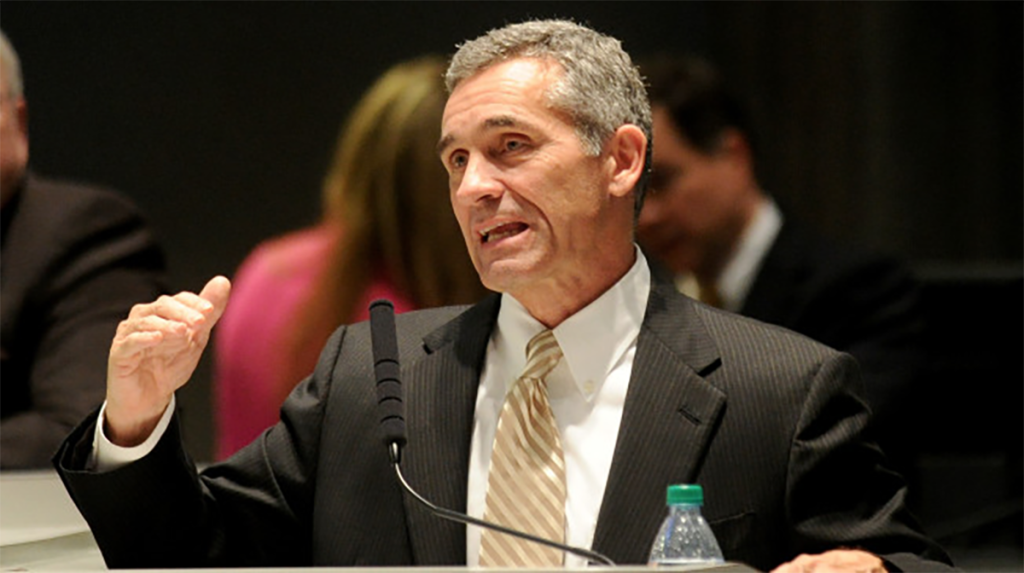
In a press conference Tuesday, Senate Pro Tem Del Marsh announced plans to introduce legislation that would bring card tables and slot machines to existing gaming facilities across the state and introduce a new lottery. Marsh urged the governor to allow his gaming proposal to be put up for vote in September, rather than imposing new taxes on Alabamians. “This is a viable option that should be put to the people to decide,” he said. “The people should have the right to make this choice before we put $600 million of new taxes on them.” Birmingham Mayor William Bell joined Marsh at the press conference to lend his support to the gaming proposal because of its potential to boost economic development in his city. “We can’t stand on the sidelines,” Bell said. “In the last gubernatorial election, you had officials saying that we should let the people have the right to decide on gaming. Gaming is by choice, taxes aren’t by choice. If we have a lottery, people can choose for themselves whether to participate in that activity.” An Auburn University study estimated that Marsh’s plan could boost state revenue by as much as $400 million. Marsh’s proposal is one of four options lawmakers have at this point to overcome the budget shortage. Other options include adopting Gov. Robert Bentley’s plan to plug the $541 million shortfall using tax increases, approving a $250 million offer from the Poarch Creek Indians in exchange for exclusive rights to manage gaming, or allowing across-the-board budget cuts that could include the loss of up to 1,000 jobs. On Monday, Bentley rejected the gambling proposal outright, saying it would “make Alabama look like Las Vegas” and not address the budget concerns: “It is one of the worst pieces of legislation I have ever seen.” In Tuesday’s press conference, Marsh presented a side-by-side analysis of his gaming proposal against what he called the “Creek Plan” and Bentley’s plan. “My proposed legislation would bring 11,000 new jobs. It’s fair to all and it’s not raising taxes on the people,” he said. By comparison, he said the governor’s tax proposal “raises taxes and results in no new jobs” and that the $250 million bailout proposal by the Poarch Creek Indians wouldn’t solve the state’s long-term budget problems. Marsh was optimistic that his caucus would support his legislation because of its potential for long-term economic gains. “I’m not hearing a lot of excitement on tax increases. What I’m hearing from my caucus is ‘Keep this in play.’” Since March, Bentley has been urging legislators to adopt his plan to plug the $541 million shortfall using tax increases, including increased taxes on cigarettes, car sales, and car rentals. The House’s General Fund budget committee is scheduled to hold public hearings on several of those proposed increases, including higher cigarette and car rental taxes, later Tuesday.
Poarch Creek Indians: We have a ‘better approach’ to Alabama gambling
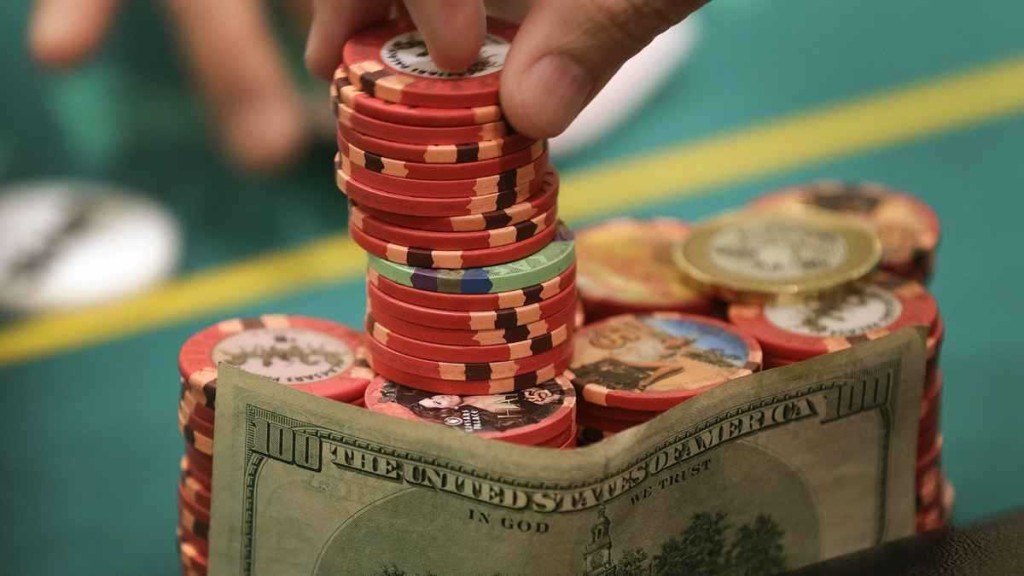
Alabama’s only federally recognized tribe is urging state officeholders to explore a compact with the tribe as state legislators talk about gambling as a revenue source. Robert McGhee, the tribe’s governmental relations for the Poarch Band of Creek Indians, said the tribe feels it has a “better approach” than a proposal to put casinos at four state dog tracks. McGhee said casinos at the dog tracks would change the landscape of Alabama for not a significant amount of money. The Poarch Creeks operate casinos with electronic bingo games, which resemble slot machines, in Atmore, Wetumpka and Montgomery. McGhee said the tribe would like the exclusive right to run casinos in the state. The tribe has also expressed interest in getting a north Alabama site. Republished with permission of The Associated Press.


